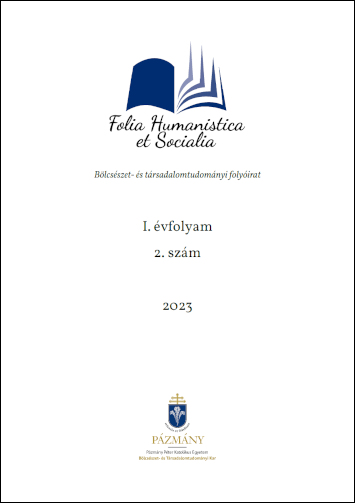Aspects of Analysing Trauma Fiction by Observing Lolita’s Impact on the 21st Century Novel, My Dark Vanessa
Published 31-12-2023 — Updated on 11-06-2024
Copyright (c) 2023 Bodnár Kata

This work is licensed under a Creative Commons Attribution 4.0 International License.
Abstract
Trauma studies in literature have only appeared towards the end of the 20th century, hence psychological analysis in fiction is a relatively new field, therefore observing pieces of trauma fiction has its challenges. Further improvement of trauma analysis is essential since earlier pieces of the literary canon can gain new interpretations with this method. This article aims to apply several methods of analysing trauma fiction from both psychologists and literary theorists. The focus is on the impact of trauma and its effect on the narrator’s memories making her fractured narration unintentionally unreliable. Consequently, the reader plays a significant part while reading trauma fiction since they are the ones who put the pieces of the story together when the narrator is set back by the overwhelming event. Moreover, due to the fact that repeated trauma is more likely to happen in captivity, it is essential to observe the setting of the novel. The emphasis is not only on the physical setting but also, due to PTSD, on psychological aspects like memories and dissociations.
References
- Balaev, M. (2008). Trends in Literary Trauma Theory. Mosaic: An Interdisciplinary Critical Journal, 41 (2), 149–166. http://www.jstor.org/stable/44029500
- Caruth, C. (2016). Unclaimed Experience: Trauma, Narrative, and History. Johns Hopkins University Press.
- Forter, G. (2007). Freud, Faulkner, Caruth: Trauma and the Politics of Literary Form. Narrative, 15(3), 259–285. https://doi.org/10.1353/nar.2007.0022
- Herman, J. L. (2022). Trauma and Recovery the Aftermath of Violence – From Domestic Abuse to Political Terror (4th ed.). Basic Books.
- Horvitz, D. M. (2000). Literary Trauma: Sadism, Memory, and Sexual Violence in American Women’s Fiction. State University of New York Press.
- Nabokov, V. (2015). Lolita. Penguin Books.
- Olson, G. (2003). Reconsidering Unreliability: Fallible and Untrustworthy Narrators. Narrative, 11(1), 93–109. https://doi.org/10.1353/nar.2003.0001
- Pederson, J. (2014). Speak, Trauma: Toward a Revised Understanding of Literary Trauma Theory. Narrative, 22(3), 333–53. https://doi.org/10.1353/nar.2014.0018
- Russell, K. E. (2020). My Dark Vanessa. HarperCollins UK.

